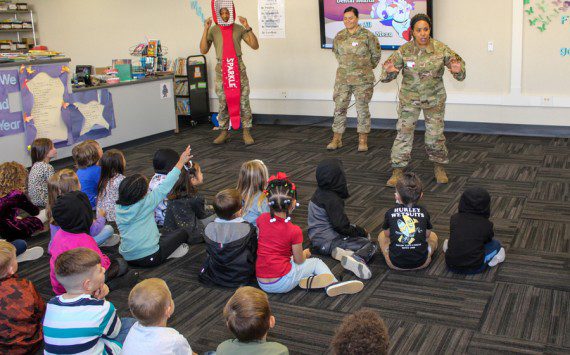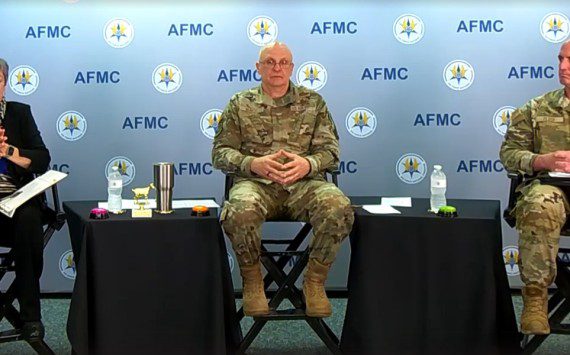RAMSTEIN AIR BASE, Germany– I was going through some old files, and I found a few notes that were written to me by the comptroller of a major command on several different occasions.
One letter conveyed his best wishes on my birthday. A second one thanked me and my unit for our hospitality during his recent visit to the base. These letters reminded me how important it is to maintain constant communication at all levels.
The letters also reminded me of the lost art of written communication. These were not short emails tasking me with a suspense or requesting information; they were handwritten letters that showed he took the time to sit down at his desk and write them longhand, with the singular purpose of providing positive feedback from one professional to another.
As I am also in the middle of performing midterm feedback sessions, they reminded me I should take a great deal of time to carefully prepare the Airman Comprehensive Assessment (ACA) feedback worksheet, Air Force Form 724.
The Air Force specifically designed this new feedback form in order to better facilitate a dialogue between a member and supervisor.
In fact, this form will need to be routed through the coordination process for members’ enlisted performance reports. In addition to taking the time to complete the form, I sat down with each individual and provided feedback, in terms of improvements to be made and behavior to sustain.
It is not necessarily easy to provide honest feedback. Obvious deficiencies can be easy to identify and communicate, but it can be difficult to come up with areas of improvement for your unit’s outstanding performers. However, it can and must be done, as everyone has room for improvement.
You must be deliberate and judicious when giving feedback to your ratees. Most people take feedback given to them seriously, and they may even take it personally.
Consequently, it is vital to take the time to prepare the exact message you want to convey and the most appropriate method in which to deliver it. A simple sentence may resound with your ratee long after your feedback session, with positive or negative impacts lasting years or even throughout that member’s entire career.
Moreover, feedback should not be one-directional. Subordinates and peers need to engage in a constant, fact-based cross-feed with one another. If your organization has a disruptive person, his or her peers have the responsibility to step up and let the person know that they are negatively affecting the unit. Conversely, peers can provide positive reinforcement when they see a member suffering. That positive communication can be the impetus for turning someone’s day or even their life around.
Subordinates can provide valuable feedback as well. There seems to be the temptation not to tell the boss bad news, but, as the saying goes, bad news never gets better with age.
Telling the emperor that he or she has no clothes might be difficult or embarrassing, but the only way to affect change is if subordinates provide positive, constructive, fact-based feedback to the organization’s leadership. Subordinates, and everyone for that matter, need to understand that there is a tactful way to provide feedback, and, when in doubt, use the Golden Rule on how you’d communicate feedback in that situation.
Honest and constructive feedback is essential to the integrity of our Air Force units. The Air Force has developed the tools and processes to facilitate this dialogue, but it is up to each and every one of us, at all levels, to provide deliberate feedback to our subordinates, peers and leaders in a way that is tactful and professional.
Quicklinks











